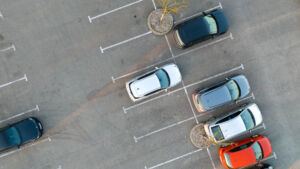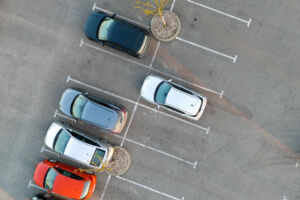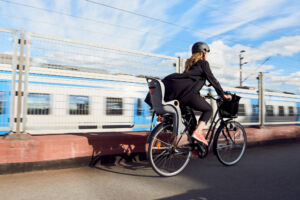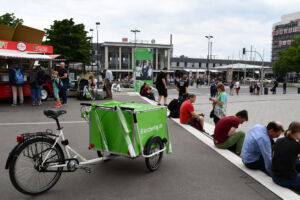
Train station of the future – sustainable mobility hub and a place with quality of stay
ISOE is researching how train stations can become attractive, sustainable mobility hubs and lively places to spend time. It is developing a modular catalog of measures for their design.










